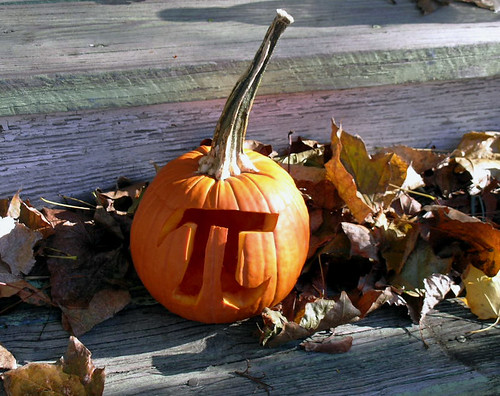the heart of light, the silence
I carved you a pumpkin first a year ago.

(But -- an October before,
before Before,
I carved you a pumpkin first a year ago.

(But -- an October before,
before Before,
Summer surprised us, coming over the Starnbergersee
With a shower of rain; we stopped in the colonnade,
And went on in sunlight, into the Hofgarten,
[or rather, went on in rain, into the empty café]
And drank coffee, and talked for an hour.

